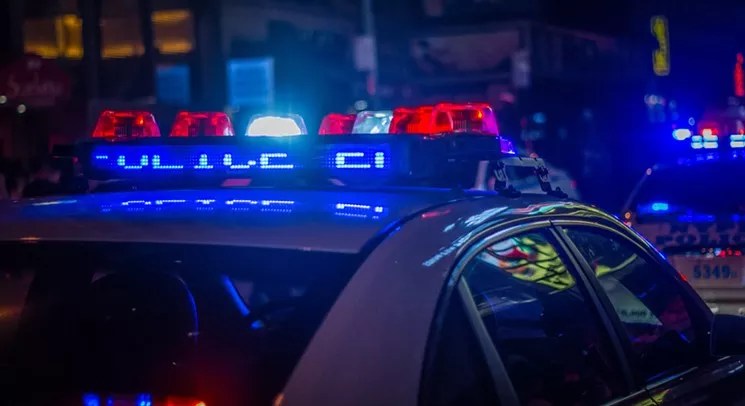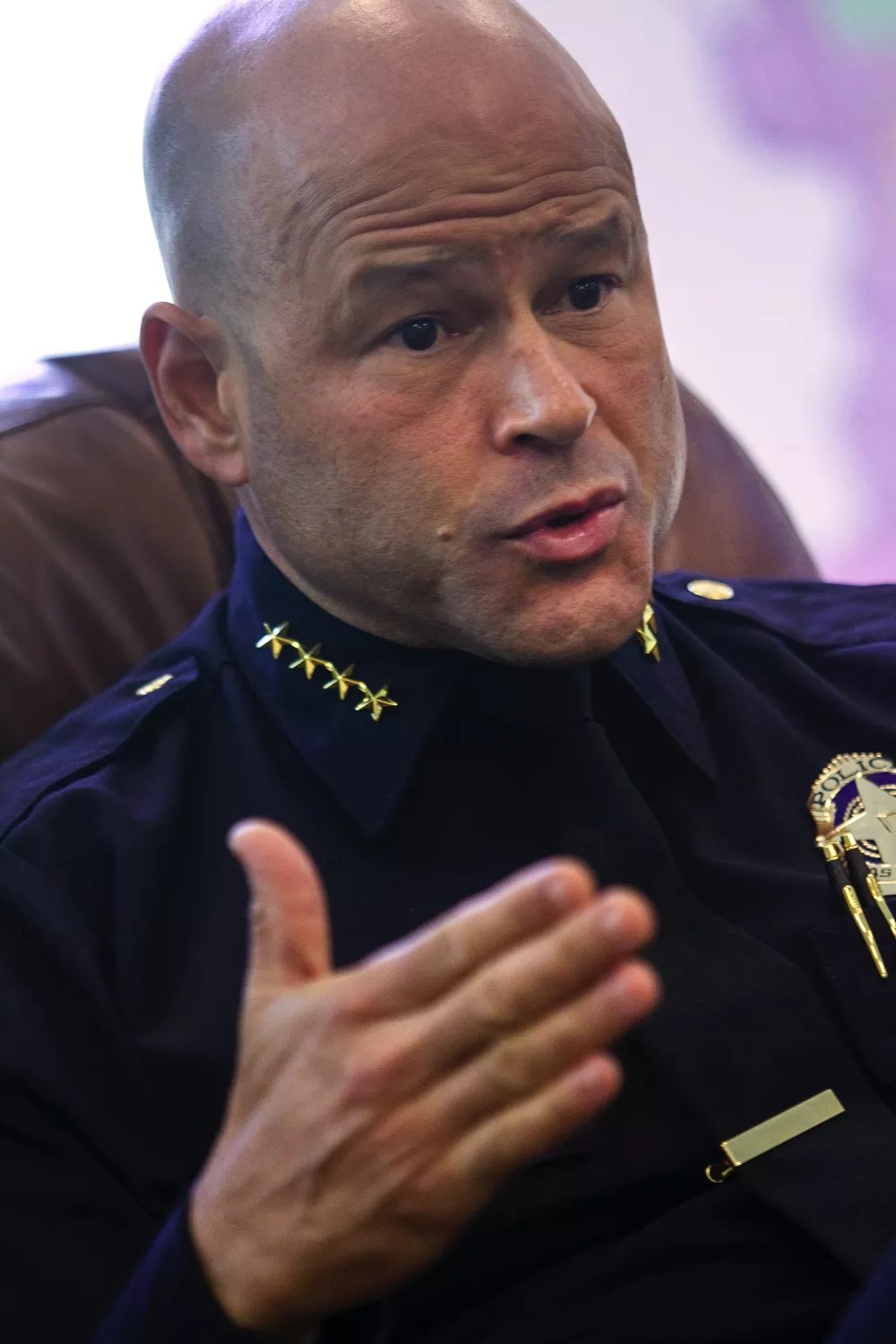
Michael F

Audio By Carbonatix
Around 1 a.m. on Father’s Day, Allegra Misitano and Geoff Kitchens pulled up to a set of DART rail tracks in separate cars. They’d never met each other before. But when they saw a car stuck on the tracks with the driver still inside, they sprung into action together and called Dallas police.
When they dialed 911, “it was just a hold line the entire time,” Kitchens told NBCDFW. “Every 30 seconds or so it would say, ‘Yes, you’re still on hold with 911. Please wait for the next attendant.”
They were still on hold when a train began approaching the car on the tracks. The two yanked the driver out of the car, and the train was able to come to a stop before ramming into the vehicle.
The week before, Dallas residents waited nearly 12 minutes before a 911 operator answered their calls for help for two stabbing victims. One of the victims was a 7-year-old girl. A resident ended up driving the girl to a nearby fire station before the police could respond. The girl later died. The other victim recovered in the hospital, according to NBCDFW.
Long wait times at the Dallas Police Department’s 911 call center have plagued the city for some time now. In a staffing report of the department last year, consulting firm KPMG recommended DPD hire more civilian employees in its communications division, divert more non-emergency 911 calls to other agencies and amend some of its dispatch procedures so the call center can operate more efficiently.
Made worse by the pandemic, continued staffing shortages at DPD led to falling performance levels at the 911 call center. And they haven’t gotten much better since.
“Even if I could snap my fingers and say ‘Give me 500 officers,’ I can’t handle 500 officers today.” – Dallas Police Chief Eddie Garcia
The Dallas Police Department is expected to answer 90% of calls within 10 seconds. But in June, a report to City Council showed that DPD was only answering 66% of calls within that time.
An anonymous post circulating on social media claims the center is facing problems because “as of three weeks ago or so, 911 has been taken over by rookies still in the academy because all the 911 call takers (civilians) walked out.”
In an email, the department denied the claim. A spokesperson said the department is taking steps to handle the calls more effectively. “No 911 call takers walked out on the job,” the spokesperson said.
To support the high volume of incoming 911 calls, the department said it has temporarily assigned various groups of personnel to communications. They have also trained over 250 DPD staff to take calls when working overtime, according to DPD. Additionally, two hiring events for the call center were scheduled this month, the next on July 17.
The anonymous post also suggested people on staff at the call center were leaving because of low pay. According to DPD, the starting salary for a 911 call taker is about $40,600. Starting pay for the same job in Plano is $40,000 a year, according to the city’s website.

Mark Graham
In a recent interview, DPD Police Chief Eddie Garcia said the department needs to grow as a whole but the infrastructure required to make that happen doesn’t exist.
“Even if I could snap my fingers and say ‘Give me 500 officers,’ I can’t handle 500 officers today,” Garica said. “I can’t train them in the academy, I can’t train them out in the field and I don’t have the supervision once they’re eligible to be a solo duty officer. … That’s why we need to grow incrementally.”
Other departments are facing similar challenges with staffing and at call centers.
An understaffed 911 call center for the Fort Worth Police Department has also led to slow or delayed response times. The department there said this was partially due to hiring interruptions caused by the pandemic, according to the Fort Worth Star-Telegram.
This year, the Austin City Council voted to remove call takers from their police department entirely, reported Community Impact. The city took 222 full-time employees from the Austin Police Department and moved them to a newly created communications department. The new department is now handling all 911 emergency calls and nonemergency 311 calls.
DPD has made a few moves to adopt the KPMG recommendations and beef up hiring.
There are talks about a new police academy that could support training more officers, according to NBC. The Dallas Police Academy is housed in buildings rented near the Dallas Executive Airport. Years ago, the buildings were meant to only be temporary locations for the academy, but it’s still there today. It’s a tight space, which, the department says, makes it more difficult to train larger groups of officers.
In 2019, DPD launched its Dallas Online Reporting System (DORS) for people to report crime that doesn’t require immediate assistance. Additionally, the RIGHT Care Program, which sends social workers on police calls to assist the mentally ill and avoid unnecessary hospitalizations, arrests and interactions with police, was recently expanded. This has helped dispatchers refer some calls to other agencies or city services.